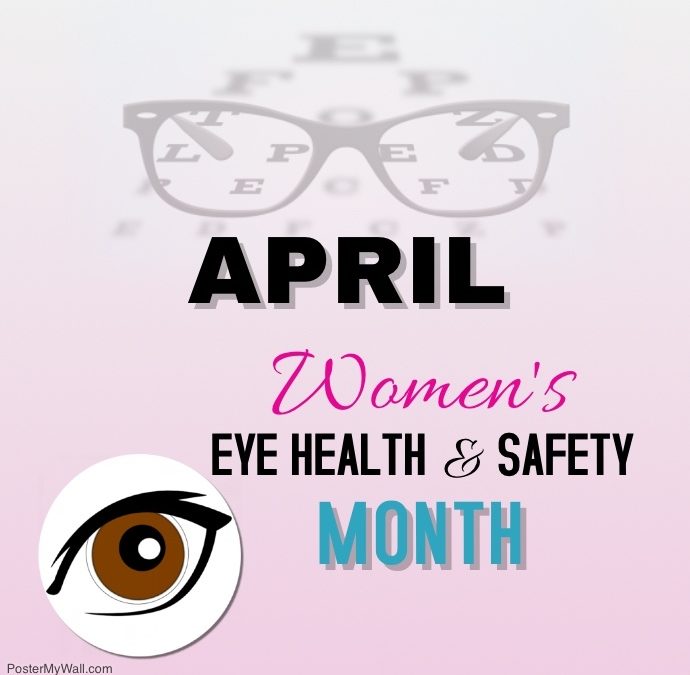April is Women’s Eye Health and Safety Month
It is an unfortunate fact of life that women are more likely than men to have eye-related problems. Two-thirds of blindness and other visual impairments worldwide occur in women.
Glaucoma, cataracts, and Age Related Macular Degeneration (AMD) are more likely to be an issue for women. There are various reasons for this: women generally live longer than men and women have hormonal fluctuations during their lives that negatively affect their eyes. Here are other reasons why women tend to have more eye problems:
- Birth control/HRT: These may cause blood clots and strokes which can cause vision Birth control/HRT can also increase women’s chances for cataracts and dry eye.
- Pregnancy: There are several changes that take place in a woman’s body during pregnancy, and eyes are not left out. Dry eye syndrome, light sensitivity, prescription changes, and eye puffiness are the most common eye problems seen in pregnant women. Migraines are common with pregnant women, which can cause light sensitivity. Higher blood pressure during pregnancy can cause blurry vision and retinal detachment.
- Menopause: Women who undergo menopause may experience dry eye syndrome anduveitis (eye inflammation).
- Fertility drugs: Women who take fertility drugs may experience spots in their vision.
- Breast cancer: Drugs taken to treat or prevent breast cancer can increase your risk ofcataracts, eye bleeds, itchy eyes, and light sensitivity.
- Autoimmune diseases: Women are more likely to experience lupus, multiple sclerosis(MS), rheumatoid arthritis, and Sjögren’s syndrome (this destroys the glands in the eye and mouth that produce moisture). These diseases can impact the eye negatively.
There are ways to lessen or even prevent future visions problems, including:
- Receive an annual eye exam: Regular dilated eye exams help monitor your vision status.
- Pregnant women should definitely see their eye doctor regularly! If you are pregnant, discuss any vision changes with your eye doctor so you can get the correct prescription change, if needed.
- Eat a healthy diet: Eating a diet rich in water intake, vitamin C, vitamin E, beta carotene, lutein,zinc, omega-3 fatty acids, and zeaxanthin will help you maintain healthy vision. Also remember to keep your diet low in sodium and caffeine.
- Quit smoking today: Smoking vastly increases your chances of eye disease.
Your health is your own. Take the necessary steps today to ensure a bright and clear future for your eyes. Call us at Visual Health (561-964-0707) to schedule your annual eye exam.


